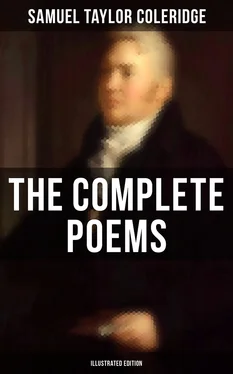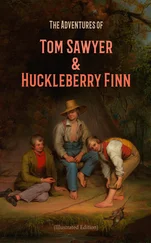The confusion of metaphor with reality is one of the fountains of the many-headed Nile of credulity, which, overflowing its banks, covers the world with miscreations and reptile monsters, and feeds by its many mouths the sea of blood.
A ready command of a limited number of words is but a playing cat-cradle dexterously with language.
Plain contra-reasoning may be compared with boxing with fists. Controversy with boxing is the cestus, that is, the lead-loaded glove, like the pugilists in the Æneid. But the stiletto! the envenomed stiletto is here. What worse? (a Germanism) Yes! the poisoned Italian glove of mock friendship.
The more I reflect, the more exact and close appears to me the analogy between a watch and watches, and the conscience and consciences of men, on the one hand, and that between the sun and motion of the heavenly bodies in general and the reason and goodness of the Supreme on the other. Never goes quite right any one, no two go exactly the same; they derive their dignity and use as being substitutes and exponents of heavenly motions, but still, in a thousand instances, they are and must be our instructors by which we must act, in practice presuming a coincidence while theoretically we are aware of incalculable variations.
One lifts up one's eyes to heaven, as if to seek there what one had lost on earth—eyes,
Whose half-beholdings through unsteady tears
Gave shape, hue, distance to the inward dream.
GREAT MEN THE CRITERION OF NATIONAL WORTH
Schiller, disgusted with Kotzebuisms, deserts from Shakspere! What! cannot we condemn a counterfeit and yet remain admirers of the original? This is a sufficient proof that the first admiration was not sound, or founded on sound distinct perceptions [or, if sprung from], a sound feeling, yet clothed and manifested to the consciousness by false ideas. And now the French stage is to be re-introduced. O Germany! Germany! why this endless rage for novelty? Why this endless looking out of thyself? But stop, let me not fall into the pit against which I was about to warn others. Let me not confound the discriminating character and genius of a nation with the conflux of its individuals in cities and reviews. Let England be Sir Philip Sidney, Shakspere, Milton, Bacon, Harrington, Swift, Wordsworth; and never let the names of Darwin, Johnson, Hume, fur it over. If these, too, must be England let them be another England; or, rather, let the first be old England, the spiritual, Platonic old England, and the second, with Locke at the head of the philosophers and Pope [at the head] of the poets, together with the long list of Priestleys, Paleys, Hayleys, Darwins, Mr. Pitts, Dundasses, &c., &c., be the representatives of commercial Great Britain. These have [indeed] their merits, but are as alien to me as the Mandarin philosophers and poets of China. Even so Leibnitz, Lessing, Voss, Kant, shall be Germany to me, let whatever coxcombs rise up, and shrill it away in the grasshopper vale of reviews. And so shall Dante, Ariosto, Giordano Bruno, be my Italy; Cervantes my Spain; and O! that I could find a France for my love. But spite of Pascal, Madame Guyon and Molière, France is my Babylon, the mother of whoredoms in morality, philosophy and taste. The French themselves feel a foreignness in these writers. How indeed is it possible at once to love Pascal and Voltaire?
AN INTELLECTUAL PURGATORY Tuesday morning, May 14, 1805
With any distinct remembrance of a past life there could be no fear of death as death, no idea even of death! Now, in the next state, to meet with the Luthers, Miltons, Leibnitzs, Bernouillis, Bonnets, Shaksperes, etc., and to live a longer and better life, the good and wise entirely among the good and wise, might serve as a step to break the abruptness of an immediate Heaven? But it must be a human life; and though the faith in a hereafter would be more firm, more undoubting, yet, still, it must not be a sensuous remembrance of a death passed over. No! [it would be] something like a dream that you had not died, but had been taken off; in short, the real events with the obscurity of a dream, accompanied with the notion that you had never died, but that death was yet to come. As a man who, having walked in his sleep, by rapid openings of his eyes—too rapid to be observable by others or rememberable by himself—sees and remembers the whole of his path, mixing it with many fancies ab intra , and, awaking, remembers, but yet as a dream.
OF FIRST LOVES
'Tis one source of mistakes concerning the merits of poems, that to those read in youth men attribute all that praise which is due to poetry in general, merely considered as select language in metre. (Little children should not be taught verses, in my opinion; better not to let them set eyes on verse till they are ten or eleven years old.) Now, poetry produces two kinds of pleasure, one for each of the two master-movements and impulses of man, the gratification of the love of variety, and the gratification of the love of uniformity—and that by a recurrence delightful as a painless and yet exciting act of memory—tiny breezelets of surprise, each one destroying the ripplets which the former had made—yet all together keeping the surface of the mind in a bright dimple-smile. So, too, a hatred of vacancy is reconciled with the love of rest. These and other causes often make [a first acquaintance with] poetry an overpowering delight to a lad of feeling, as I have heard Poole relate of himself respecting Edwin and Angelina. But so it would be with a man bred up in a wilderness by Unseen Beings, who should yet converse and discourse rationally with him—how beautiful would not the first other man appear whom he saw and knew to be a man by the resemblance to his own image seen in the clear stream; and would he not, in like manner, attribute to the man all the divine attributes of humanity, though, haply, he should be a very ordinary, or even a most ugly man, compared with a hundred others? Many of us who have felt this with respect to women have been bred up where few are to be seen; and I acknowledge that, both in persons and in poems, it is well on the whole that we should retain our first love, though, alike in both cases, evils have happened as the consequence.
THE MADDENING RAIN August 1, 1805
The excellent fable of the maddening rain I have found in Drayton's "Moon Calf," most miserably marred in the telling! vastly inferior to Benedict Fay's Latin exposition of it, and that is no great thing. Vide his Lucretian Poem on the Newtonian System. Never was a finer tale for a satire, or, rather, to conclude a long satirical poem of five or six hundred lines.
[For excellent use of this fable, see The Friend , No. 1, June 9, 1809, Coleridge's Works , Harper & Brothers, ii. 21, 22.]
SENTIMENTS BELOW MORALS
Pasley remarked last night (2nd August 1805), and with great precision and originality, that men themselves, in the present age, were not so much degraded as their sentiments. This is most true! almost all men nowadays act and feel more nobly than they think—yet still the vile, cowardly, selfish, calculating ethics of Paley, Priestley, Locke, and other Erastians do woefully influence and determine our course of action.
TIME AND ETERNITY
O the complexities of the ravel produced by time struggling with eternity! a and b are different, and eternity or duration makes them one—this we call modification—the principle of all greatness in finite beings, the principle of all contradiction and absurdity.
THE PASSION FOR THE MOT PROPRE August 3, 1805 Saturday
It is worthy notice (shewn in the phrase "I envy him such and such a thing," meaning only, "I regret I cannot share with him, have the same as he, without depriving him of it, or any part of it,") the instinctive passion in the mind for a one word to express one act of feeling—[one] that is, in which, however complex in reality, the mind is conscious of no discursion and synthesis a posteriori . On this instinct rest all the improvements (and, on the habits formed by this instinct and [the] knowledge of these improvements, Vanity rears all the Apuleian, Apollonian, etc., etc., corruptions) of style. Even so with our Johnson.
Читать дальше












